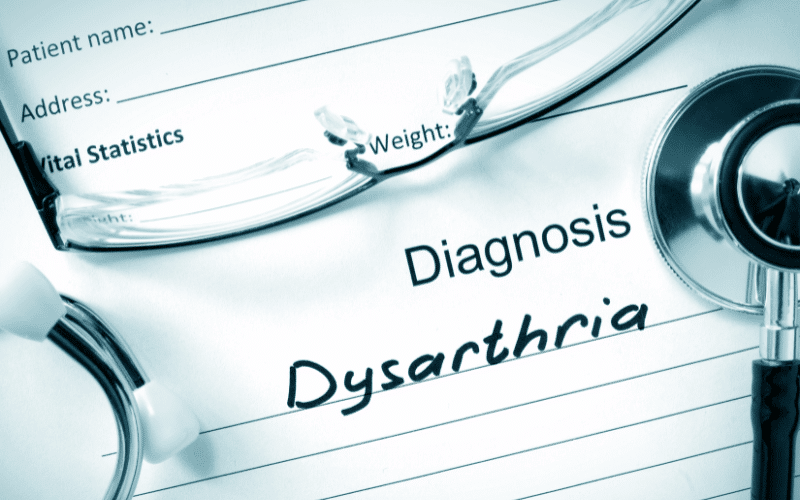Symptom 2: Dysarthria: The Subtle Speech Changes in Ataxia

If you’ve ever tried to hold a conversation in a crowded, noisy room, you understand how important clear speech is for communication. Dysarthria, or difficulty in articulating words, is a common symptom in individuals with ataxia. It may start as a slight slur, or a difficulty in pronouncing certain words, slowly escalating to more noticeable speech changes.
Dysarthria in ataxia isn’t just about pronunciation. It extends to the rhythm and speed of speech, making conversations sound slow, jerky, or staccato. It’s like trying to play a well-known song with a broken instrument. The melody is familiar, but the music doesn’t sound right.
This speech change can affect more than just communication. It can impact a person’s self-esteem, making them feel self-conscious about their speaking abilities. Despite knowing what they want to say, expressing these thoughts becomes a Herculean task. The frustration from this difficulty can lead to a sense of isolation and withdrawal from social situations.
Like an unsteady gait, dysarthria in ataxia is a result of damage to the cerebellum. It’s not a vocal cord issue, but rather a problem of coordination. The brain struggles to command the muscles involved in speech, resulting in the characteristic changes we see in dysarthria. This loss of control can transform a casual conversation into a strenuous endeavor.
Dysarthria, therefore, is more than just a speech issue. Subtle speech changes should never be dismissed as tiredness or temporary. It could be the voice of your body subtly hinting at a possible neurological condition. Paying attention to these changes can provide invaluable insights into your health. (2)